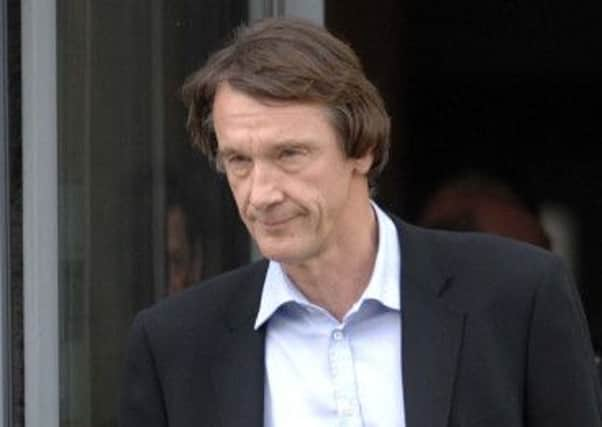Threat to close Scotland’s only oil refinery


Ineos, one of the world’s largest chemicals companies, is understood to be looking into shutting down its petrochemical plant in Grangemouth due to rising costs and the decline in production of gas from the North Sea.
Chairman Jim Ratcliffe declared the Scottish plant is “at a crossroads”, which could lead to its closure and the loss of more than 1,000 jobs at the Stirlingshire site. But last night, unions – which have fought a lengthy, bitter dispute with the firm over pensions – accused the Ineos boss of engaging in scare tactics to intimidate the workforce.
Advertisement
Hide AdAdvertisement
Hide AdWorkers at the site staged a two-day strike in 2008 over proposed pensions changes that crippled the refinery and triggered panic-buying at the pumps nationwide, as drivers rushed to fill up.
The strike was estimated to be the most costly in British history, totalling about £600 million.
In a rare interview, Mr Ratcliffe was quoted yesterday saying that, in the past few years, the Grangemouth plant had “not been a successful asset” and had “lost us a significant amount of money”.
Ineos had been considering building an additional facility at Grangemouth to process large quantities of a new fuel derived from the gas ethane, he said, and was talking with the government about obtaining a loan guarantee for the project.
But any decision depended on the outcome of talks with the unions on reducing costs at the Grangemouth site. “To have a future, it needs cheap feedstocks [the raw materials for processing] and a sensible cost structure. If we can’t resolve those issues, it would need to shut down,” he reportedly said.
Mr Ratcliffe said it had “always been hard work for us to manufacture in the UK . . . [which was] not a particularly profitable place for us”.
He blamed high energy costs, unions that resisted change and a workforce that was less skilled than in countries such as Germany.
Another problem was the reliance of the Scottish site on North Sea gas, which is in decline. The chairman is also reported to have mentioned “expensive” costs, which included what he termed “old-fashioned pensions” for staff employed at the site.
Advertisement
Hide AdAdvertisement
Hide AdPat Rafferty, Scottish secretary of Unite, which represents 1,200 workers at Grangemouth, said: “We are disappointed in this blatant attempt by Jim Ratcliffe to position the workforce ahead of scheduled talks on pensions and future site investments.
“Our position on our site is that we should talk face-to-face on these matters rather than conduct our industrial business in the media.”
A Unite spokesman said: “We are shocked and the workforce will be shocked. It’s going to be upsetting for them [to learn of threats to their jobs through the media].”
Ineos was founded in 1998 by Mr Ratcliffe, a chemical engineer turned entrepreneur. Within a decade, he had transformed the firm, through numerous acquisitions, into one of the world’s largest chemicals companies, with 51 sites in 11 countries.
The 1,700-acre site at Grangemouth is said to make more than a million tonnes of chemical products annually in various plants, while the refinery has an annual capacity of 10m tonnes.
In 2008, workers at the plant were warned that the company was considering closing one of its plants on the site.
Ineos has previously signed contracts to ship large quantities of ethane to its chemicals plant in Rafnes, Norway, where it has invested more than €100 million in a new import terminal. The first delivery of ethane is scheduled for 2015.
No-one from Ineos was available for comment last night.
Earlier this year, Unite threatened to shut Scotland’s only oil refinery after a key figure at the centre of the Falkirk candidate- selection row was suspended by his employers at the plant.
Advertisement
Hide AdAdvertisement
Hide AdStephen Deans, the chairman of Unite in Scotland, was suspended at the Ineos facility amid claims he was involved in a bid to manipulate the contest to select a Westminster candidate in the town.
However, the company reversed its decision after Unite threatened to “shut your factory down” by launching a strike.
The Grangemouth facility is of major industrial importance. The industrial action in 2008 also resulted in BP closing the Forties pipeline system, which is responsible for delivering almost a third of Britain’s North Sea oil production.